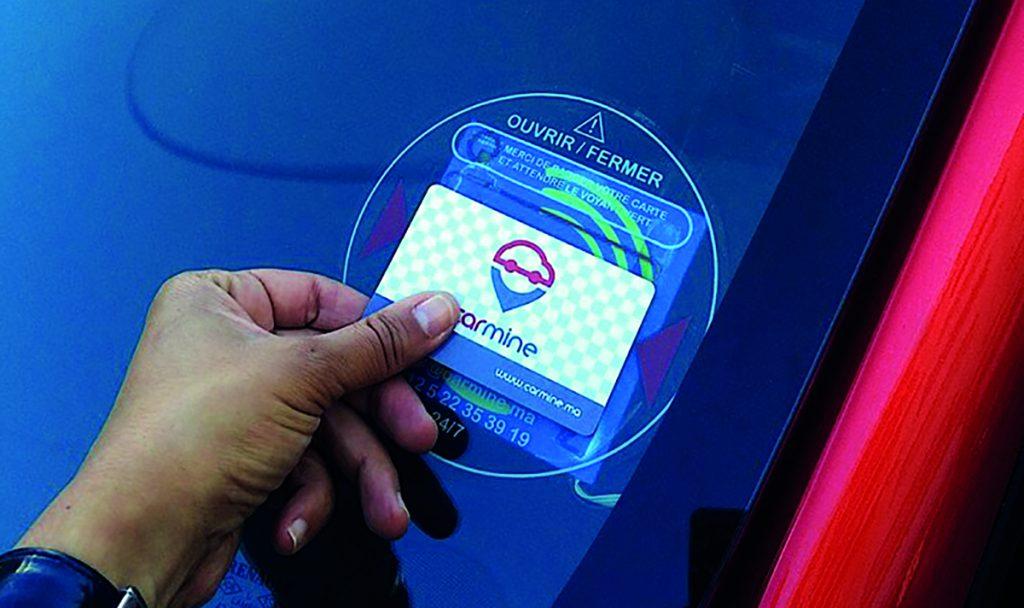This, a first for Morocco, is on offer in Casablanca from the startup Carmine. Now that self-service bikes have rolled into the country, cars are following suit and offer a much-wanted service in the economic capital, burdened with increasing, chaotic traffic.
The firm was created in 2014, and tested the waters with a pilot project in July 2015. According to CEO and founder Mohamed Mrani Alaoui, this was, “A period during which we really reached maturity.”
There was a lot to do: running trials on rates, defining parking spaces through a partnership with the city, personalising technology and getting to know client needs.
“People thought the concept wouldn’t work in Morocco, to judge by the time it took us to go into commercial operation,” says Alaoui. “But that pilot period was about making the new service more effective. And then, the hardest part was to find funding. I started out alone with my own savings and we were extra careful until we found investors.”
The deal was finalised when former minister of transportation Karim Ghellab signed up to the venture as an associate through his investment fund Massir Invest. This is the kind of backing that enabled the effective launch of Carmine in mid-October 2017.
Given the nature of the business, explains Aloui, it’s necessary to juggle between the investor who is advancing the working capital, the leasing companies that finance the vehicles, and the bank. “Bringing these three parties together is very difficult,” he says.
Now, the startup can follow its ambitions. To gauge the quality of the service, Carmine must take into account a sample of 40 individual users per shared vehicle; 3,600 users in total for the 120 expected vehicles over a span of four years.
Rates start at Dh30 ($3) per hour plus Dh1 per kilometre, with a subscription ranging between Dh290 for a quarter and Dh890 for a full year – fuel, insurance, and parking included.
Corporate philosophy
Carmine’s corporate philosophy is about more than just offering vehicles and the founder is committed to working towards safer driving habits. In Carmine’s fleet of vehicles in-car technology saves all information related to clients’ driving, be it accelerations or decelerations, turns, speed, etc.
When the vehicle runs at 80km/hr on a road where the limit is 60, the company is sent a warning.
This information, which remains confidential, is then turned into grades.
A client who gets less than seven out of 10 is given a period of time to improve should they wish to retain their membership. And the other way around: people scoring more than nine out of 10 benefit from special offers. “This is our way of encouraging people to be careful on the road,” the CEO said.
Having trained in actuarial methods in Montreal, then in San Francisco, Alaoui has always seen himself as an entrepreneur.
The idea of a shared car service came to him upon his return to Morocco. “I didn’t have a car when I got back to Casablanca. Coming back from the USA, where such services are widespread, while here nothing of this sort was in place, I set myself to work.”
The typical clientele interested in Alaoui’s service ranges from young professionals such as himself to people in transit, families or companies in occasional need of a main or secondary vehicle and university students.
This is a car-sharing service totally suited to the collaborative economy, as is becoming more and more widespread throughout the world.
